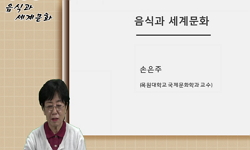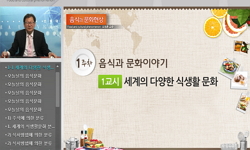The picaresque novel, which forms the basis of modern realism literature, features a ‘pícaro’, a character ostracized from the established social order, and represents a narrative dealing with life under a more realistic view, very far from the p...
http://chineseinput.net/에서 pinyin(병음)방식으로 중국어를 변환할 수 있습니다.
변환된 중국어를 복사하여 사용하시면 됩니다.
- 中文 을 입력하시려면 zhongwen을 입력하시고 space를누르시면됩니다.
- 北京 을 입력하시려면 beijing을 입력하시고 space를 누르시면 됩니다.

피카레스크 소설에 나타난 서사적 장치로서 음식과 그로테스크한 변형 - 『라사리요 데 토르메스 Lazarillo de Tormes』와 『사기꾼 El Buscón』을 중심으로 - = Food and Its Grotesque Variations as a Narrative Device in Picaresque Novels: Focusing on Lazarillo de Tormes and El Buscón
한글로보기https://www.riss.kr/link?id=A106869327
- 저자
- 발행기관
- 학술지명
- 권호사항
-
발행연도
2020
-
작성언어
-
-
주제어
food ; narrative device ; picaresque novel ; 음식 ; 서사적 장치 ; 피카레스크 소설
-
등재정보
KCI등재
-
자료형태
학술저널
-
수록면
173-194(22쪽)
- 제공처
- 소장기관
-
0
상세조회 -
0
다운로드
부가정보
다국어 초록 (Multilingual Abstract)
The picaresque novel, which forms the basis of modern realism literature, features a ‘pícaro’, a character ostracized from the established social order, and represents a narrative dealing with life under a more realistic view, very far from the previous literary tradition of portraying life in idealistic or symbolic ways, such as those appearing in chivalric novels, court novels and pastoral novels. The modernity based on the affirmation of everyday life is related to the meaning of objects as they are perceived by human senses in daily life, breaking away from the allegorical interpretation which presupposed that there is a transcendent meaning behind any object. The modernity of this aspect in the picaresque novels can be seen through food and its grotesque variations, which are linked to pícaro's life journey. His life can be summarized as: first, hunger and step away from it, second, expressing the desire for a rise in status, and finally, as seen in El Buscón, when it is not accepted by the existing social structure, which frustrates his desire. The food and its grotesque variations function as a narrative device intimately connected to those aspects.
동일학술지(권/호) 다른 논문
-
대학 스페인어 글쓰기 수업에서의 교수자의 효과적인 교정 피드백과 학습자의 자기교정과의 상관관계
- 한국스페인어문학회(구 한국서어서문학회)
- 송예림 ( Song Yerim )
- 2020
- KCI등재
-
전치사의 목적어 생략이 불가한 이유에 대한 이론적 고찰
- 한국스페인어문학회(구 한국서어서문학회)
- 정원석 ( Jung Wonsuk )
- 2020
- KCI등재
-
- 한국스페인어문학회(구 한국서어서문학회)
- 정혜윤 ( Chung Hye-yoon )
- 2020
- KCI등재
-
- 한국스페인어문학회(구 한국서어서문학회)
- 김선욱 ( Kim Seon-Uk )
- 2020
- KCI등재





 KCI
KCI KISS
KISS






